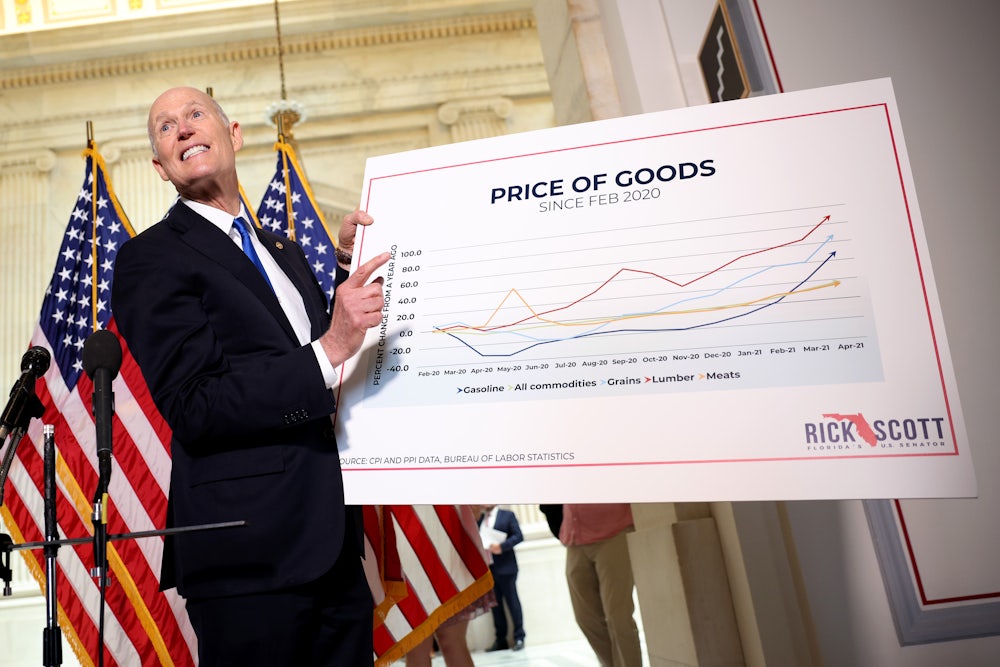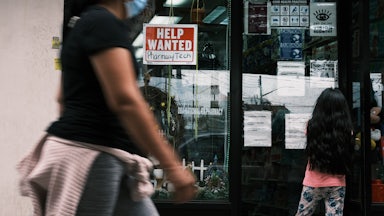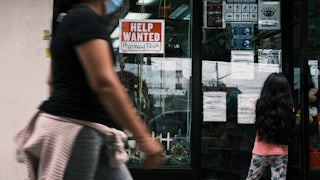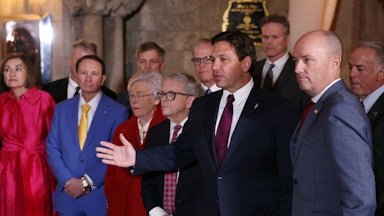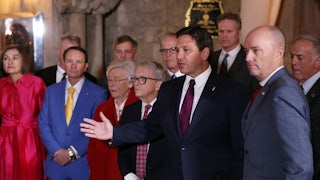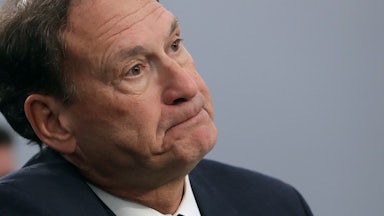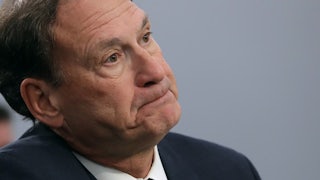“I find the fixation on 1970s inflation puzzling,” the New York Times editorial writer Binyamin Appelbaum wrote this past May on Twitter. “I mean really,” he continued, “of all the things that were terrible about the 1970s how is [it] that inflation is the one thing the Boomers have really devoted their lifetimes to preventing?”
The 5.4 percent annualized increase in the Consumer Price Index in June—and a 0.9 percent over May, the highest one-month jump since June 2008—was the lead story in the dead-tree edition of Appelbaum’s newspaper on July 14. It was a sound news decision. The Federal Reserve doesn’t like to see the annual CPI rise much above 2 percent, and we civilians get a little squirrelly when it rises above 4 percent.
The general consensus among economists, which is probably correct, is that the 5.4 percent hike is one of those fluky momentary changes attributable to the end of the Covid lockdown, much as I’ve argued about the tight labor market (which is probably evaporating even as I type these words). The two phenomena may even be linked.
But I don’t care to be condescended to by a bunch of Gen Xers and Millennials about my ’70s-bred fear of inflation. It feels too much like the condescension we Boomers directed toward Depression babies whenever they warned us that we were playing with fire in deregulating the financial markets. Poor dears, we thought, traumatized for life by the 1929 crash and one-third of a nation ill-housed, ill-clad, ill-nourished.
The Depression babies turned out to be right, of course. We first began to suspect as much when the nation’s savings and loans cratered in the 1980s, and we accepted it as fact after the global financial crisis of 2007–8 (not that we did very much afterward to prevent the next banking meltdown).
Granted, inflation isn’t anything like an economic depression. There are even some things to like about inflation. It screws creditors and helps borrowers, which can be helpful in reducing economic inequality. Mildly inflationary Fed policies are preferable to overzealous inflation-hawk policies that throw people out of work. It can spin out of control, but so can inequality and unemployment.
But I’m not here to debate the economic effects of inflation, or when or how it might return in earnest. I’ll leave that to the academic experts. My interest is in inflation’s political effects. Inflation is death to progressive governance because it makes people feel that the government is spinning madly out of control, and when that happens—fairly or unfairly—voters always blame Democrats and elect Republicans instead.
“You know how we dealt with the massive federal debt incurred during World War II?” Appelbaum wrote on Twitter. “I-N-F-L-A-T-I-O-N.” I’m sorry to make Appelbaum the punching bag for his generation’s obtuseness about inflation; let me stipulate here that I admire his 2019 book, The Economists’ Hour. But even I, not yet born in 1946, know the public expressed its fears about postwar inflation that year by voting in the first GOP congressional majority since 1930. That Congress passed, over President Harry Truman’s veto, the Taft-Hartley amendments to the 1935 National Labor Relations Act. It took a while for people to notice, but Taft-Hartley eventually broke the U.S. labor movement.
The story of how the Great Inflation of the 1970s poleaxed the postwar liberal consensus is more familiar to me. In this instance, it wasn’t remotely fair for voters to blame Democrats because, of the four presidents who presided over inflation’s rise—Lyndon Johnson, Richard Nixon, Gerald Ford, and Jimmy Carter—two were Republicans. Paul Volcker, the Fed chairman widely credited with finally bringing inflation to heel by jacking up interest rates and causing a deep recession, was a Carter appointee.
But inflation was still high in October 1980, when candidate Ronald Reagan was able to state in a presidential debate that the “misery index” (unemployment plus inflation) exceeded 20 percent on the incumbent Carter’s watch. It was plain which of the misery index’s twin components alarmed Reagan most; two years earlier Reagan had said inflation was “as violent as a mugger, as frightening as an armed robber, and as deadly as a hit man.”
That rhetoric seems unhinged today, but at the time the public seemed to agree. In a New York Times poll published 12 days before the 1980 election, 56 percent of respondents identified inflation as the most important problem facing the country (as against only 29 percent who identified unemployment). A 52 percent majority said, despite Reagan’s alarmism, that their family finances were no better or worse than the previous year. The proportion that said their finances were worse (27 percent) was only a few percentage points higher than the proportion that said their finances were better (21 percent). It didn’t matter. Carter lost.
In the debate, Carter very likely sealed his fate by downplaying inflation’s significance:
Inflation. unemployment, the cities [i.e., crime] are all very important issues, but they pale into insignificance in the life and duties of a president when compared with the control of nuclear weapons.
In fairness to Carter, sowing fears about Reagan’s warmongering rhetoric was polling well at the time. But it wasn’t enough. With the 1980 election, New Deal liberalism, which Carter was already tempering, got stopped in its tracks. During Reagan’s first term, crime worsened and unemployment rose. But inflation dropped like a stone, and Reagan won reelection in a landslide.
Inflation changed American politics in a more lasting way as a result of the 1978 property-tax revolt in California. Spiraling inflation pushed up property taxes, prompting a Republican activist named Howard Jarvis to wage a successful campaign for Proposition 13, a measure that lowered property tax assessments and limited future tax increases. “The urgency and the desperation of the California tax revolt were virtually without modern parallel,” the journalist Robert Kuttner observed in his 1980 book, Revolt of the Haves. “As much as any other event, it seemed to signal an abrupt end to the era that had begun in 1933.”
The tax revolt spread eastward, merging with rising pressure on Congress to index income tax brackets to inflation to curb the “bracket creep” that raised taxes on people whose standard of living remained the same. The California-led movement caught the attention of the former California governor. During Reagan’s 1976 campaign for president, tax cuts had not been a major theme. In 1980, they were. Inflation made them so.
One of the first things Reagan did as president was to end bracket creep. Alas, he didn’t stop there. He also slashed the top marginal income tax rate, first from 70 percent to 50 percent, and eventually all the way down to 28 percent. How Reagan’s “morning in America” economic recovery could be achieved when the top tax rate, at 50 percent, was 10 percentage points higher than it ever would be again is not a mystery supply-siders have ever chosen to address.
No subsequent president, not even Democratic ones, dared raise the top marginal rate above 40 percent. President Biden’s grand ambition is to raise it to the same 39.6 percent it was under Obama, and then only for households earning in excess of $400,000. It’s become a given in American politics that no Republican member of Congress will support an increase in income tax rates, and no Democrat will do so without great trepidation. This 40-year status quo damages our politics, increases income inequality, and limits the exercise of imagination about what new steps the government can take to improve the common welfare. You can blame inflation for that. If you’re a liberal, that’s reason enough to fear its return.
